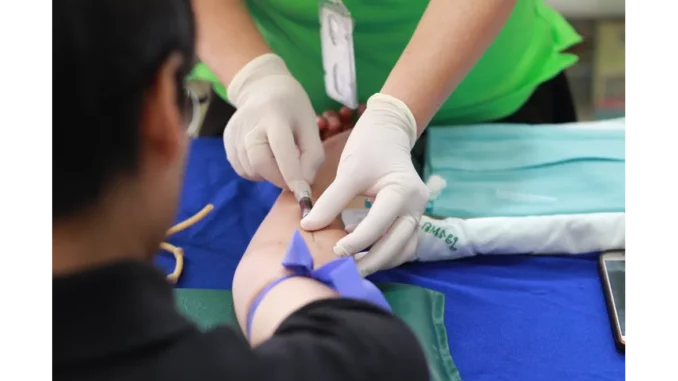
During my engaging conversation with Dr. Emily Harrison, a dedicated researcher at the University of Michigan, her fervent commitment to tackling racial disparities in medical data was immediately apparent. Dr. Harrison has been deeply involved in an innovative initiative aimed at rectifying biases inherent in artificial intelligence (AI) models used for diagnosing critical illnesses like sepsis. As we delved into her work, the pivotal role it plays in ensuring equitable healthcare for all became strikingly clear.
“Black patients are systematically undertested compared to their white counterparts,” Dr. Harrison stated with a determined tone. “This isn’t merely a minor oversight; it’s a significant issue with profound consequences for patient care.” Her work is underpinned by research from the University of Michigan, which unearthed that Black patients have a lower likelihood than white patients of receiving essential medical tests for diagnosing serious conditions. This disparity is not a theoretical concept but a tangible reality that can result in life-or-death consequences.
Dr. Harrison illustrated the problem with a poignant example: “Envision two patients, one Black and one white, both presenting with similar symptoms. However, the Black patient is less likely to be tested and accurately diagnosed, leading to a cycle where data sets used to train AI models erroneously assume these patients are healthier than they truly are, thus perpetuating the issue.” The root of the problem lies in the data employed to train these AI systems. If the data is biased, the AI models are destined to produce skewed outcomes. “It’s a classic case of ‘garbage in, garbage out,'” Dr. Harrison remarked, underscoring the critical need for precise and unbiased data.
The research team at the University of Michigan, including Dr. Jenna Wiens, is at the forefront of developing methodologies to correct these biases. Their strategy involves crafting an algorithm that compensates for untested patients, particularly focusing on racial disparities. “We don’t want to exclude any patient records,” Dr. Harrison asserted. “Our algorithm identifies likely illness in untested patients based on race and vital signs, ensuring comprehensive patient inclusion.” The ramifications of this work are extensive. By addressing bias in medical testing, these researchers are setting the stage for more accurate AI-driven diagnoses—a necessity as more healthcare providers rely on AI to guide clinical decisions.
“AI holds the potential to revolutionise healthcare,” Dr. Harrison noted. “But if we fail to address these biases, we’ll only worsen existing disparities.” Her insights resonated deeply with me, illustrating the dual-edged nature of technological progress in medicine. The team’s findings, published in PLOS Global Public Health and presented at the International Conference on Machine Learning, highlight the critical need to identify and amend biases in medical data. According to Dr. Harrison, the studies revealed that testing rates for white patients were up to 4.5% higher compared to Black patients with similar medical needs. This discrepancy partly stems from differing hospital admission rates, with white patients more often evaluated as ill and admitted for further care.
“This systemic bias isn’t just a statistical anomaly,” Dr. Harrison warned. “It’s a reflection of broader societal issues that seep into our healthcare systems.” One of the most promising facets of their research is the computer algorithm developed to address this bias. When tested on simulated data, the algorithm enhanced the model’s accuracy to match that of a model trained on unbiased data. This accomplishment underscores that even with imperfect data, significant progress can be made toward equitable healthcare.
Dr. Harrison also highlighted the collaborative essence of this work. Researchers from Michigan Medicine and the VA Center for Clinical Management Research contributed, underscoring the interdisciplinary effort needed to tackle such a complex issue. “This isn’t something one person or even one team can solve alone,” she remarked. “It’s a collective effort that requires diverse perspectives and expertise.”
As our conversation came to a close, I inquired about the future of AI in healthcare. Dr. Harrison’s response was hopeful yet tempered. “We have a long way to go, but the progress we’ve made is encouraging. By acknowledging and addressing biases, we can ensure that AI serves all patients equally, irrespective of race.” Her work stands as a testament to the power of research and innovation in confronting systemic issues within healthcare. As AI continues to be integrated into medical practices, vigilance against biases that could perpetuate disparities is crucial. Dr. Harrison’s dedication and commitment to equity in healthcare offer a promising vision of a future where AI genuinely benefits everyone.


Be the first to comment